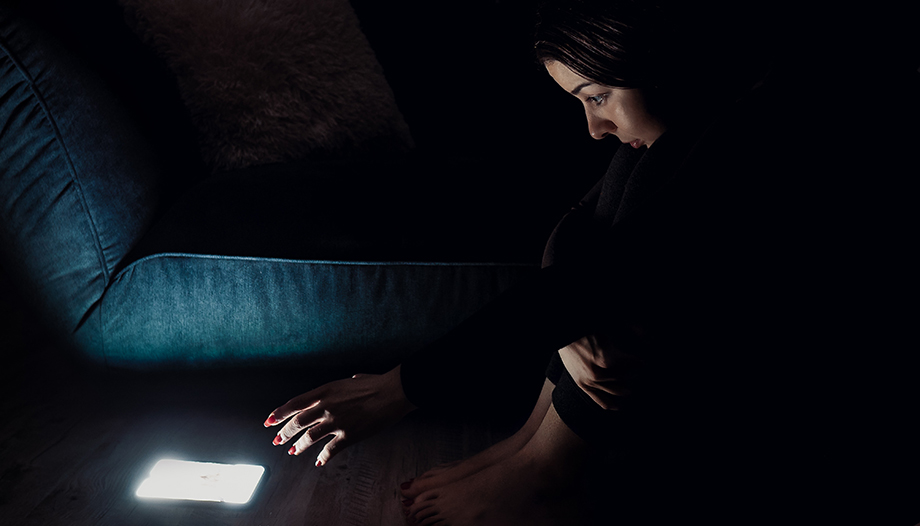A priest, concerned, shared with me the following question: "I don't know if it's good for me to confess to all those kids who tell you they've been using pornography. It seems like they just come to the confessional as if it's a 'legal' issue with God; like they'll pass to pay the fine, and that's it; but they don't perceive the underlying wrongdoing or how it affects their life. From a psychological perspective, do you think it's healthy? I get the impression that such 'mechanical' access to confession can affect how they do or don't approach resolving what's wrong with them. I wonder whether to give them absolution and that's it, or to tell them that until they take it seriously, don't come to me.".
I agreed with him about the psychological aspect he was alluding to, and encouraged him to step forward and take advantage of those confessionsThe spiritual director, apparently mechanical, to help them. Those of us who are dedicated to mental health have the experience that a good and healthy spiritual director is of great help to improve medical and psychological health and enhances the work done in therapy.
He was right. A recent study of 110,000 adolescents has shown that moral incongruence is one of the risk factors for the development of problematic pornography use (PPU). Along with this, 16 other factors appear, including frequency of consumption, shame in sexual life and the use of pornography as an emotional regulator and stress reducer.
Classically, spiritual and religious practice was considered a protective factor for addictions and substance use. However, it was seen that this was not the case in the UPP; in some studies, high religiosity and greater presence of out-of-control sexual behaviors were related. Hypotheses to explain this suggest a possible overly self-pitying perception of God's forgiveness, which makes it difficult to become aware of the reality of the problem; an expectation that it is God who will fix the problem with an extraordinary grace and that the person concerned is therefore unable to act. In obsessive persons with religious practice it can derive in a high scrupulosity that would potentiate both the behavior and its disproportionate evaluation with respect to the seriousness; or in a more severe interpretation of the behaviors performed and, therefore, a higher score in the diagnostic tests applied.
I encouraged this priest to take advantage of the fact that this person is there talking to him, with a certain perception that this behavior is not good for him, and that he can help him to become aware of the magnitude of the problem, to know the origins and causes of the problem and to become aware of the capacities he has to solve it and of those he needs to acquire to be victorious. It can be useful to understand the situation as if he were talking about alcohol consumption or pathological gambling.
A first step will be for the pornography user to become aware of what is happening to him/her, of the psychological and mental seriousness of this addiction, of whether he/she feels free to engage in the behavior or not, and of the consequences it has on his/her life. It may be useful to suggest an informative website, such as www.daleunavuelta.org. He can be asked what he relates it to, whether it is just having a good time, unpleasant emotional states (sadness, boredom, anger, anxiety, loneliness, insecurity, self-depreciation), disorder in other areas of life, or specific triggers (music stimuli, video, alcohol, being alone, etc.).
It will be worthwhile to get to know him/her better and find out what strengths, skills, abilities, capacities and virtues he/she has, to rely on them to move forward; what and who makes him/her feel capable; what lifestyle he/she leads, whether he/she follows a personal schedule and keeps time occupied with interesting and growing tasks; what use he makes of various devices (tablet, cell phone, PSP, computer); hobbies; educational style and family configuration; network of friends; whether he has had unpleasant experiences regarding sexuality or someone has hurt him; whether he has support to talk about all these things and/or address the issue of pornography use with someone. You can be given concrete directions to grow in these areas or ask for professional help if needed.
This person needs motives and motivations for change, and it does not usually work if these motives are exclusively moral or spiritual. What will he gain if he quits? How will he be better off? How will he feel the change? He needs to know that he will lose something and that, if he does not use porn, he will have to use other tools to take good care of himself and regulate himself emotionally.
With all this progressive help, you will increase your ability to see that you can do something to change, that you are not helpless and you are not alone because you have a real companion.









